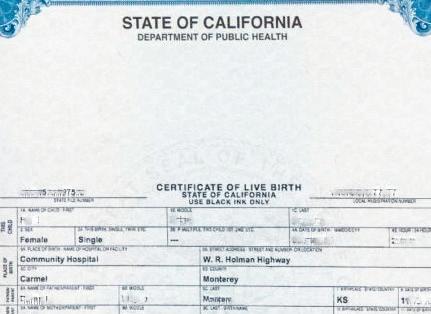
A wave of discussion traveled through San Quentin Rehabilitation Center as residents learned that the U.S. Supreme Court ruled 6-3 in favor of President Donald Trump’s effort to end birthright citizenship.
If Congress wished to end birthright citizenship, it could do so by amending the constitution, which would require ratification by three-quarters of states and two-thirds vote in both the House and Senate, according to an NPR report.
“What we see in countries where there is not birthright citizenship is that, you know, there are multigenerational groups of people who don’t have full membership,” said Julia Gelatt, associate director of the U.S. Immigration Policy Program at the Migration Policy Institute. “They don’t have a full say in the governments that rule over them. And in some cases, people can also end up being stateless.”
The Supreme Court document said that by entering a “universal injunction,” which is the only practical way to protect groups from unlawful government action, it was too broad sweeping.
“Nowhere did the Government contest the District Courts’ uniform holdings that the Citizenship Order likely violated the Constitution,” said the dissenting court document. “Instead, it challenged only the scope of the ordered relief, arguing that the injunctions should be narrowed to block the Order’s enforcement against only the individual persons named in the complaints.”
An injunction barred executives from applying Executive Orders to people outside the plaintiff in a specific case.
“Some might object that this court is not well equipped to make those significant decisions –namely, decisions about the interim status of a major new federal statute or executive action – on an expedited basis. But district courts and courts of appeals are likewise not perfectly equipped to make expedited preliminary judgments on important matters of this kind. Yet they have to do so, and so do we,” said the concurring U.S. Supreme Court document.
The effort to end birthright citizenship could affect nearly 1.3 million people born in the U.S. who are children of undocumented parents, according to the Pew Research Center.
The U.S. Constitution gave the federal government many powers, but the power to remove a person’s birthright was not one of them.
Resident Aaron Moton, 26, said that his compassion for people migrating into the United States came after he learned about the social, political, and economic difficulties migrants faced in their home countries. His own grandparents originally came to the U.S. from Spain, searching for a chance to build a better life for their children.
“I believe removing [people] from this country is messed up. I feel like people that come from Mexico had a hard life,” said Moton. “They left because they wanted to take their kids from that environment.”
In his concurring opinion, Supreme Court Justice Kavanaugh wrote there should be a clearly defined interim framework in place, instead of a half-measured plan that applies to select individuals or organizations in specific states or regions.
Resident Gregory Prestigiacomo, 59, said the process for citizenship should be easier for people who want to come to the U.S.
“Bring them over and give them time to acquire their citizenship,” said Prestigiacomo. “If they are not able to follow the process, the government should give them a set amount of money and a plane ticket, not a cell in a detention facility.”
The U.S. Citizenship and Immigration Services, which came into existence through the Homeland Security Act of 2002, provided steps to petitioners for naturalization and immigration services.
First, a person must be 18 years old. Second, they must have taken up lawful residency in the United States for a minimum of five years. Third, the process required that a candidate speak English fluently, and last, a person must demonstrate good moral character, said a document published by the U.S. Citizenship and Immigration Services.
“We know that when people have legal status and the right to work legally in the United States and full membership in the country, that helps them to integrate, to thrive and to contribute more to our country, to our economy and our democracy,” said Gelatt.
Not all justices agreed with the decision. Justice Jackson, Justice Kagan, and Justice Sotomayor dissented.
Justice Jackson said the U.S. Supreme Court’s decision allowed the executive office to operate in two zones. The first zone where law reigns, meaning the executive cannot deny citizenship to the offspring of the people named in the current lawsuit. The ruling has created another zone in which the lower courts are powerless to the executive’s actions and the Constitution’s constraints become irrelevant.
“…to have a system of government that is bound by law is that everyone is constrained by the law, no exceptions,” said Justice Jackson. “And for that to actually happen, courts must have the power to order everyone (including the Executive) to follow the law –full stop.”